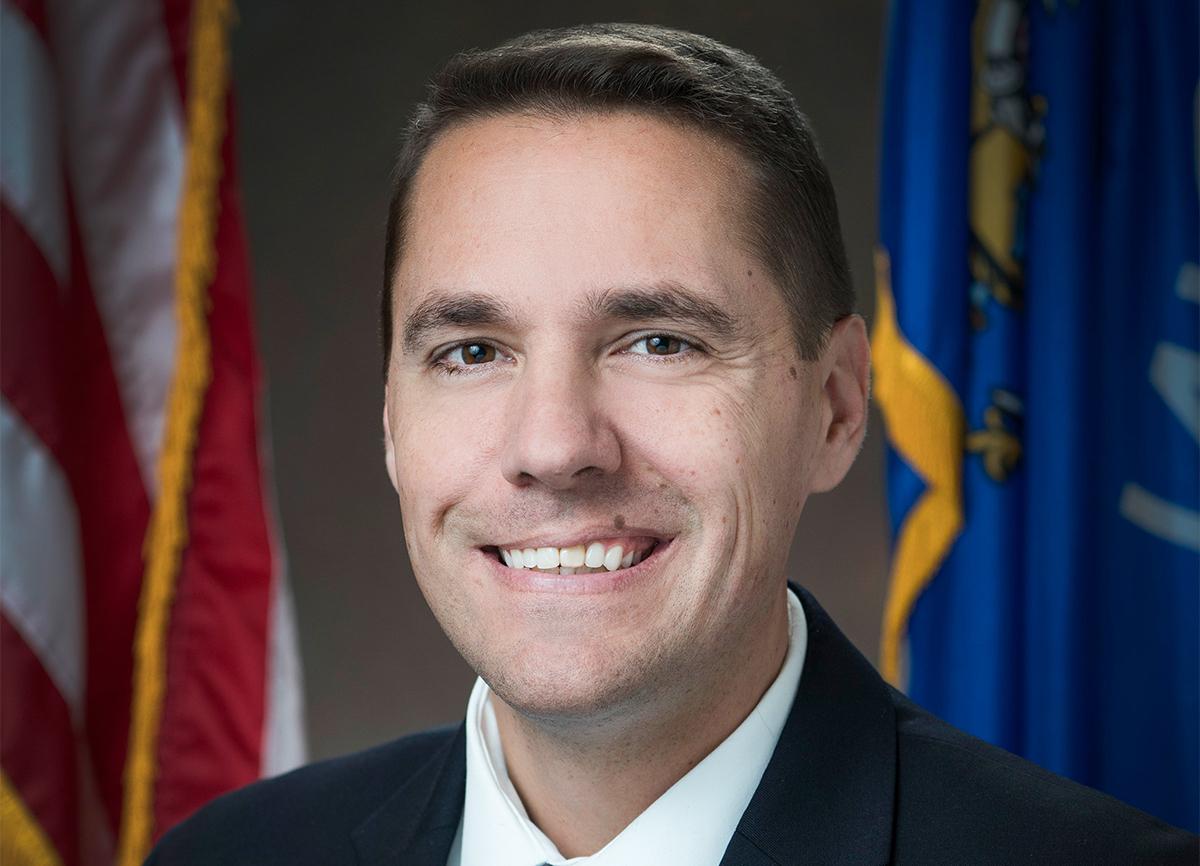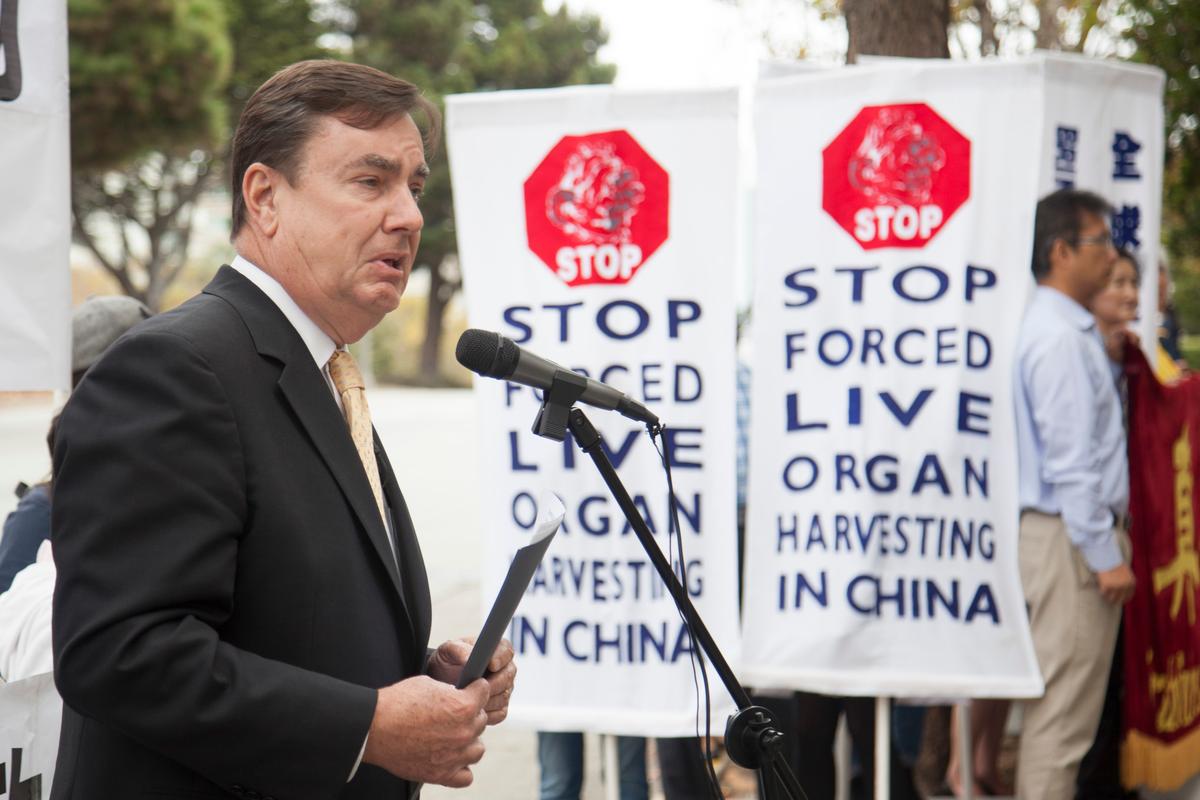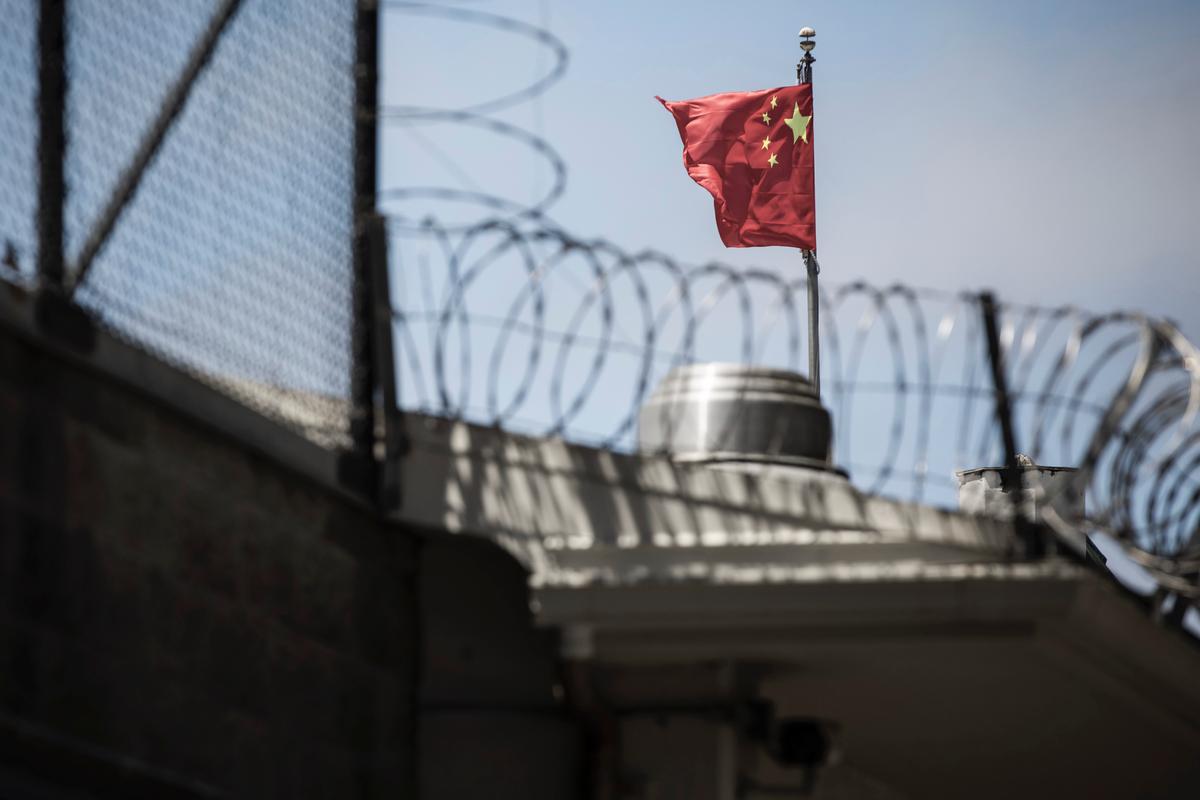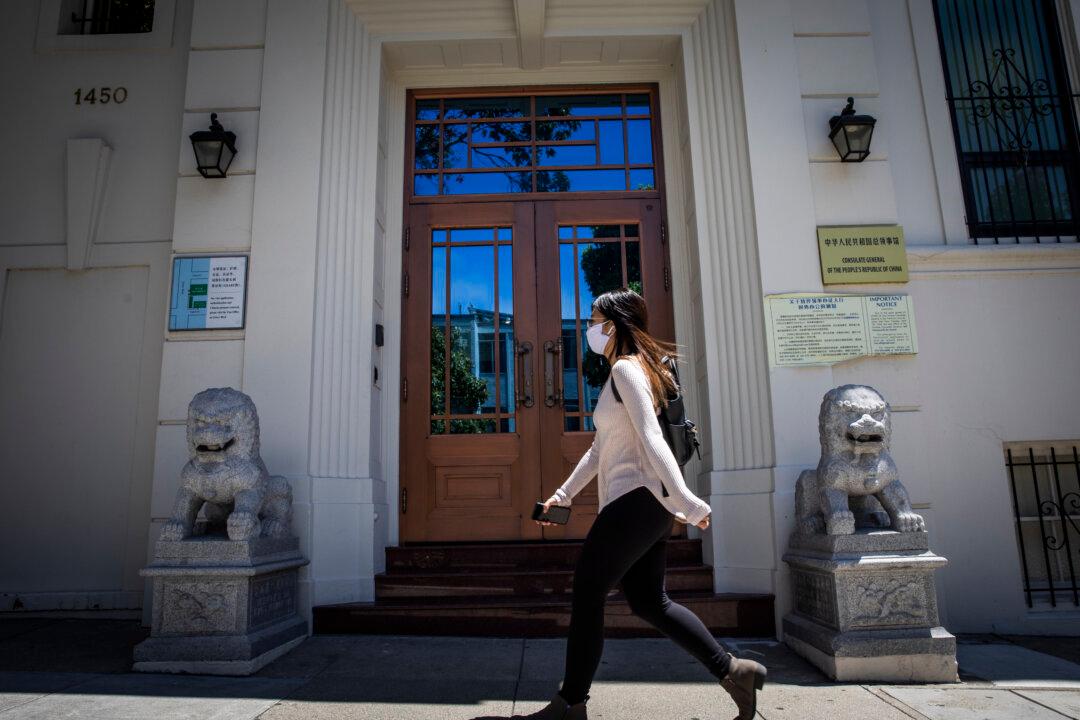It was late February 2020, as the pandemic was heating up in the United States, when a request from China caught Wisconsin state Sen. Roger Roth’s attention.
It was an email from Wu Ting, wife of the Chinese consul general in Chicago.
Wu wanted Roth to help pass a resolution “in support of China’s fight against the novel coronavirus.”
The “Chinese government has taken unprecedentedly rigorous measures to bring [the coronavirus] under control, including locking down Wuhan,” she wrote in a Feb. 26 email that has been viewed by The Epoch Times.
“We have drawn up a draft resolution just for your reference,” she wrote, adding that the Chinese consulate in Chicago was committed to promoting China–Wisconsin relations, “particularly mutually beneficial cooperation in trade, agriculture, and other fields and people-to-people links.”
The Chinese consul general looked forward to visiting Roth’s “beautiful state” and meeting with the senator to “discuss how to take our relations forward,” the email said.
Regarding the draft resolution, “In essence, it praised China for their openness and transparency in their handling of the coronavirus,” Roth told The Epoch Times.

“I thought this had to be a joke,” Roth said. “It came from a Hotmail account, of all places. It wasn’t even an official thing.” He discarded the email and thought of it no further, but Wu persisted. A few weeks later, she followed up using the same email, attaching the same resolution.
He had his staff verify the email address with state government sources and learned that Chinese consulate officials routinely use private email accounts. Wu, it turns out, is the wife of the Chinese consulate general Zhao Jian.
Once Roth realized the email was legitimate, he became “downright angry.”
“I dictated a one-word response to them, and I said: Dear Consul General, Nuts. Signed respectfully, Roger Roth,” he said. “Not only do we respond to them with the word ‘nuts,’ we even drafted our own resolution on the Communist Party of China, exposing who they really are.”
‘Pawns’ for Beijing
Wisconsin isn’t the only state where Beijing has tried to exert influence.Around the same period as the emails to Roth, the state of Utah was approving a resolution expressing solidarity with the Chinese people. In language similar to what Wu had put forward, the resolution noted “a friendly relationship and strong economic, cultural, and people-to-people ties” that Utah and China share, and “the unique, 14-year legislative relationship between Utah and Liaoning,” referring to a legislative exchange program between the Western state and a Chinese province.
That Feb. 25, 2020, resolution also urged against virus restrictions that “unnecessarily interfere with international travel and trade and raise fear and stigma.” At the time, the Trump administration had imposed a flight ban to and from China in response to the COVID-19 outbreak in Wuhan, a move that initially sparked condemnation from the Chinese regime and the World Health Organization, but was ultimately adopted by the majority of countries around the world as the pandemic evolved.
States like Utah that passed such resolutions didn’t know “what was really happening and how they were being used as pawns,” Roth said.
The Epoch Times has reached out to the bill’s sponsor, state Sen. Jacob Anderegg, for comment. An email to the bill’s sponsor in the state House, Eric Hutchings, who was a representative until last January, was undeliverable.
The states of Georgia and New York also have passed a “China Day” resolution.

Coercion and Threats
For those who chose to take a stance critical of the Chinese Communist Party, the regime took direct action in a bid to thwart their efforts.The first time former California state Sen. Joel Anderson experienced Chinese pressure firsthand was 15 years ago, when he was first elected to the California state assembly.
His purported offense was to introduce a resolution recognizing the anniversary of the introduction of Falun Gong, a spiritual belief that the regime has marked for elimination since 1999. The resolution, he said, simply aimed to welcome Falun Gong adherents “to a country that recognizes religious liberty.”
“It didn’t say anything more. It didn’t say that they were the best faith, or they were better than many other faiths,” he said. “All it said was, you know, we welcome you.”
That resolution put Anderson in the crosshairs of the Chinese Communist Party. Shortly after, he received a six-page letter from Chinese authorities branding him a “terrorist.”
“It told me that if I traveled to China, I'll be arrested and prosecuted as a terrorist,” Anderson told The Epoch Times.

Anderson, who at the time knew little about the Chinese regime’s persecution of Falun Gong, said he was taken aback.
“China doesn’t get to dictate to the United States. We’re a free country. And we allow religious liberty,” he said. “We allow all faiths to be practiced here in the United States.”
The Chinese regime’s displeasure toward Anderson didn’t ease up after he joined the California state Senate years later. As a senator, he was invited on an official trip to China to promote bilateral trade relations. Recalling the threats from the letter, he mentioned the issue to the state office handling the logistics. The answer that came back was blunt: He “would not be welcomed,” Anderson recalled.
“So I can’t go to China without fear of being arrested and convicted.”
What happened to Anderson was not at all a one-off incident.
Over the decade and a half that followed, he and other U.S. officials at local and federal levels would receive pressure through visits, emails, and phone calls from Chinese authorities with an eye toward bending their policies in China’s favor.
Anderson drew the regime’s attention a second time when in 2017, he introduced a resolution denouncing Beijing’s persecution of Falun Gong.
After the measure was approved by the state Senate Judiciary Committee with a vote of 5–0, the Chinese consulate in San Francisco sent a round of letters to all of Anderson’s colleagues, warning that the passage of the resolution could “deeply damage the cooperative relations between the State of California and China and seriously hurt the feeling of Chinese people.”

“They didn’t let it get to a vote; what they did is they tabled it. And then they voted to table it so that it could not be heard.”
“So on the federal level, it was supported, on the state level, it was not,” he said. His colleagues “didn’t want to talk about it. But “the only difference between supporting it or not supporting it” was the letter.
Visa Blackmail
On the hot button issue of Taiwan, a self-ruled island that the regime has long desired to control, the regime has been no less aggressive.
“Chinese officials told members of my staff on multiple occasions that if I canceled the trip to Taiwan, I would be granted a visa,” he wrote in an op-ed in October 2019.
“This was visa blackmail, designed to stanch the longstanding tradition of robust U.S. congressional engagement with Taiwan,” he wrote.
As Utah adopted the pro-Beijing resolution in the early stages of the pandemic, another bill condemning the Chinese regime’s forced organ harvesting appeared to hit roadblocks in the state’s legislature.
The measure was introduced in late February 2020 by state Rep. Steve Christiansen. Days later, however, Utah doctor Weldon Gilcrease, who had been working with Christiansen on the bill, got a call informing him that the lawmaker was backing out.
In effect, Christiansen said, “I’m backing out because I was told I need to talk to the Chinese community,” according to Gilcrease, an oncology professor at the University of Utah School of Medicine.
“To me, that meant he was pressured,” he told The Epoch Times. “He wasn’t backing out because he didn’t believe it was true, he was backing out because he was afraid of not listening to the ‘Chinese community.’
“To me, that’s the voice of the Chinese Communist Party. Those are the people that have clearly put pressure on our officials. The Chinese Communist Party has used its channels to pressure our legislators to do nothing.”
Keep the Pressure On
California hasn’t seen any major legislative action relating to Falun Gong since Anderson left the state Senate in 2018.The former state legislator, who has been advocating for the victims of Beijing’s persecution for years, said he still finds it hard to understand why the communist regime perceives the spiritual group as a threat.
“As lawmakers all over the country, everything we do plays into a larger narrative,” he said. And we have an opportunity, though it be limited ... we have an opportunity to make a stand for freedom, and to make a stand for the freedom-loving peoples of China right now, or who are held hostage by this brutal regime.”
To achieve that goal, Roth said, U.S. lawmakers need to make sure they’re not enabling the CCP.
“If I had passed this resolution, that would have been enabling the CCP, and they would have used this for propaganda on their own people,” he said, recalling the resolution drafted by the Chinese consulate. “So right now is an opportunity for Americans to wake up and recognize this fight for freedom, which sometimes we take for granted here in the United States.
“Freedom is a fragile thing.”





